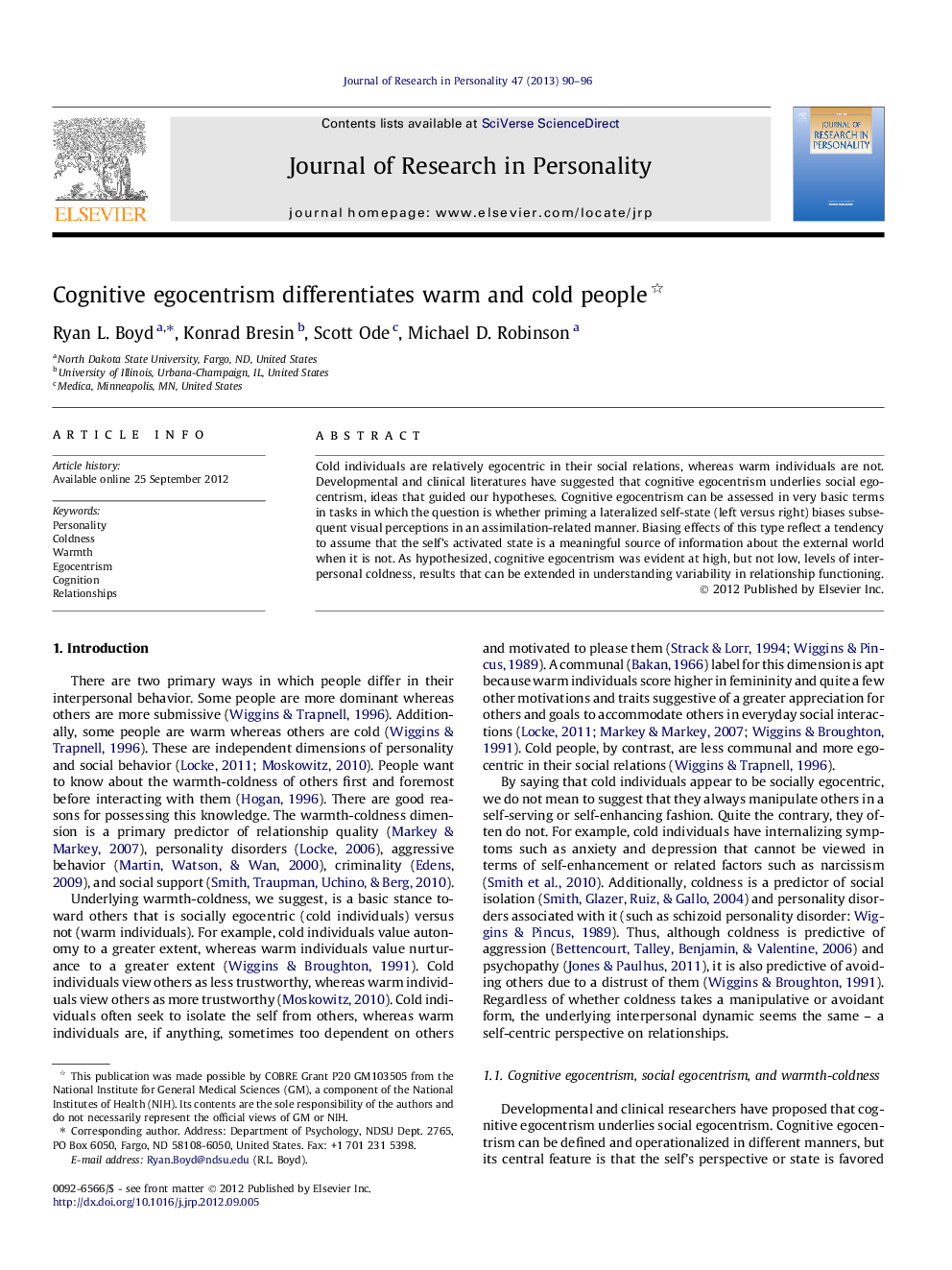| Article ID | Journal | Published Year | Pages | File Type |
|---|---|---|---|---|
| 951442 | Journal of Research in Personality | 2013 | 7 Pages |
Cold individuals are relatively egocentric in their social relations, whereas warm individuals are not. Developmental and clinical literatures have suggested that cognitive egocentrism underlies social egocentrism, ideas that guided our hypotheses. Cognitive egocentrism can be assessed in very basic terms in tasks in which the question is whether priming a lateralized self-state (left versus right) biases subsequent visual perceptions in an assimilation-related manner. Biasing effects of this type reflect a tendency to assume that the self’s activated state is a meaningful source of information about the external world when it is not. As hypothesized, cognitive egocentrism was evident at high, but not low, levels of interpersonal coldness, results that can be extended in understanding variability in relationship functioning.
► Interpersonal coldness predicts poor interpersonal functioning. ► Trait interpersonal coldness is hypothesized to predict cognitive egocentrism. ► A lateralized self-state cognitive probe was used to assess cognitive egocentrism. ► Our findings supported our hypothesis and were generalized across paradigms. ► Findings are discussed from trait, cognitive, and interpersonal perspectives.
